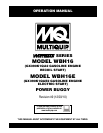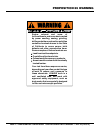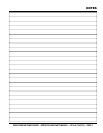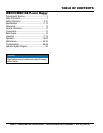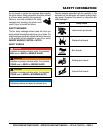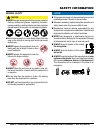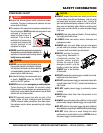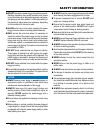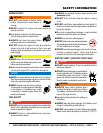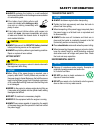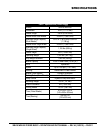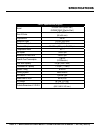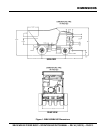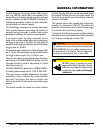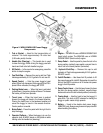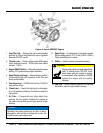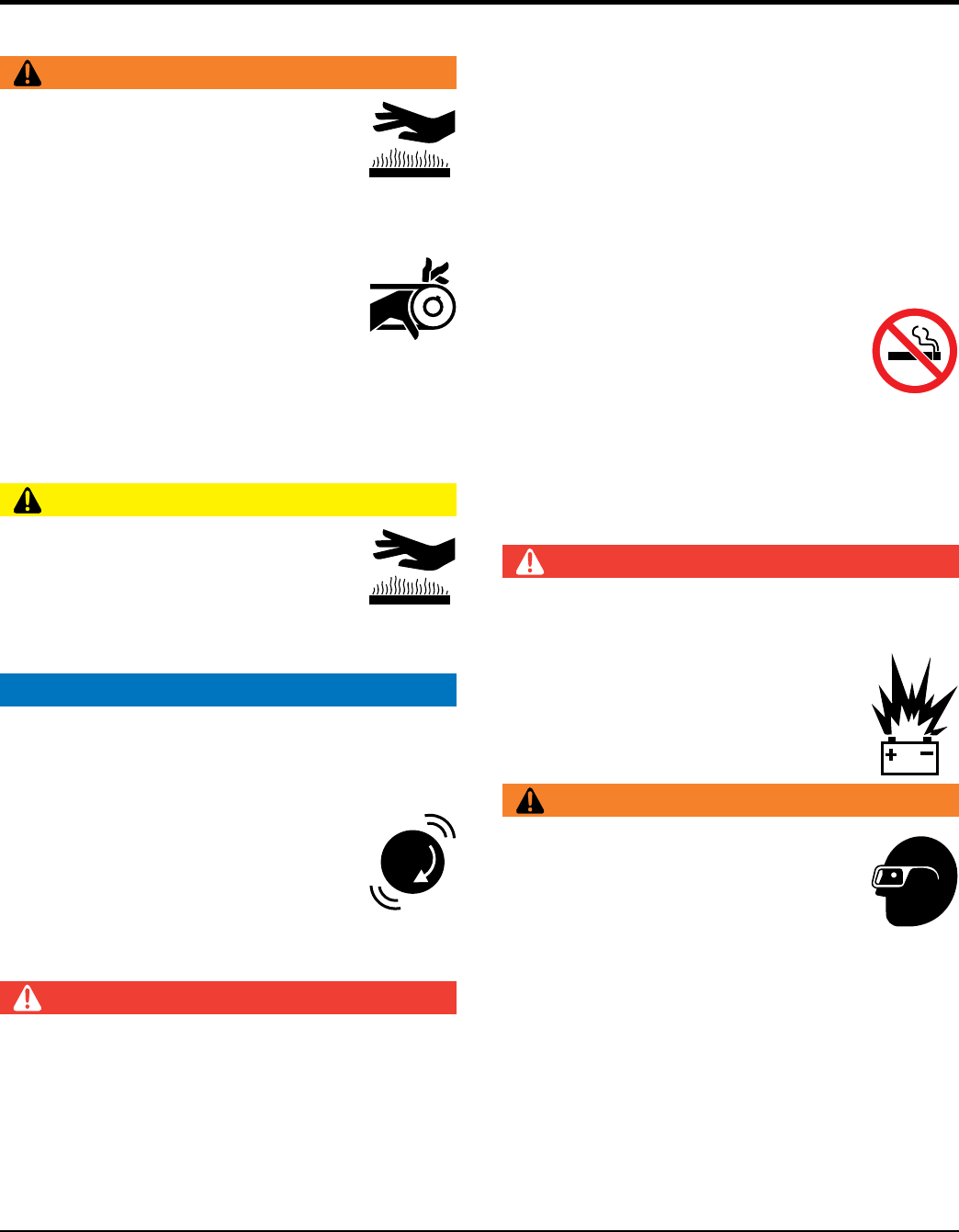
SAFETY INFORMATION
place hands or fingers inside
engine compartment when engine is
running.
operate the engine with heat shields or
guards removed.
Keep fi ngers, hands hair and clothing away
from all moving parts to prevent injury.
shut down the engine before
performing service or maintenance.
remove the engine oil drain plug while the
engine is hot. Hot oil will gush out of the oil tank and
severely scald any persons in the general area of the
power buggy.
touch the hot exhaust manifold,
muffl er or cylinder. Allow these parts to cool
before servicing equipment.
Make certain the operator knows how to and is capable
of turning the engine OFF in case of an emergency.
NOTICE
run engine without an air fi lter or with a dirty air
fi lter. Severe engine damage may occur. Service air fi lter
frequently to prevent engine malfunction.
tamper with the factory settings
of the engine or engine governor. Damage
to the engine or equipment can result
if operating in speed ranges above the
maximum allowable.
start the engine near spilled fuel or combustible
fl uids. Fuel is extremely fl ammable and its vapors can
cause an explosion if ignited.
refuel in a well-ventilated area, away from
sparks and open fl ames.
use extreme caution when working with
fl ammable liquids.
fi ll the fuel tank while the engine is running
or hot.
overfi ll tank, since spilled fuel could ignite if it
comes into contact with hot engine parts or sparks from
the ignition system.
Store fuel in appropriate containers, in well-ventilated
areas and away from sparks and fl ames.
use fuel as a cleaning agent.
smoke around or near the equipment.
Fire or explosion could result from fuel vapors
or if fuel is spilled on a hot engine.
leave the power buggy in the vicinity of ovens,
furnaces or radiant heaters. Heat could raise the
pressure of the fuel so that vented gas could ignite.
drop the battery. There is a possibility that the
battery will explode.
expose the battery to open fl ames,
sparks, cigarettes, etc. The battery contains
combustible gases and liquids. If these
gases and liquids come into contact with a
fl ame or spark, an explosion could occur.
wear safety glasses when
handling the battery to avoid eye irritation.
The battery contains acids that can cause
injury to the eyes and skin.
Use well-insulated gloves when picking up
the battery.
keep the battery charged. If the battery is not
charged, combustible gas will build up.
charge battery if frozen. Battery can explode.
When frozen, warm the battery to at least 61°F (16°C).



